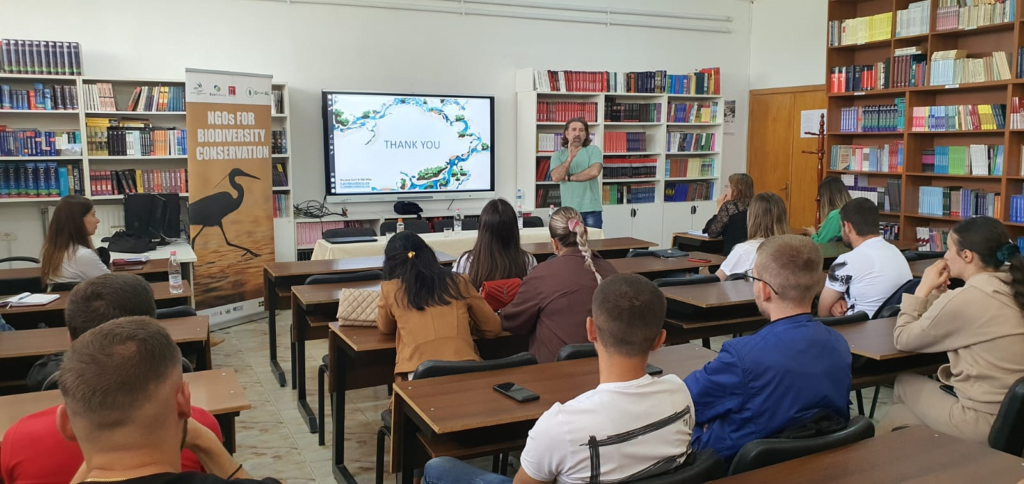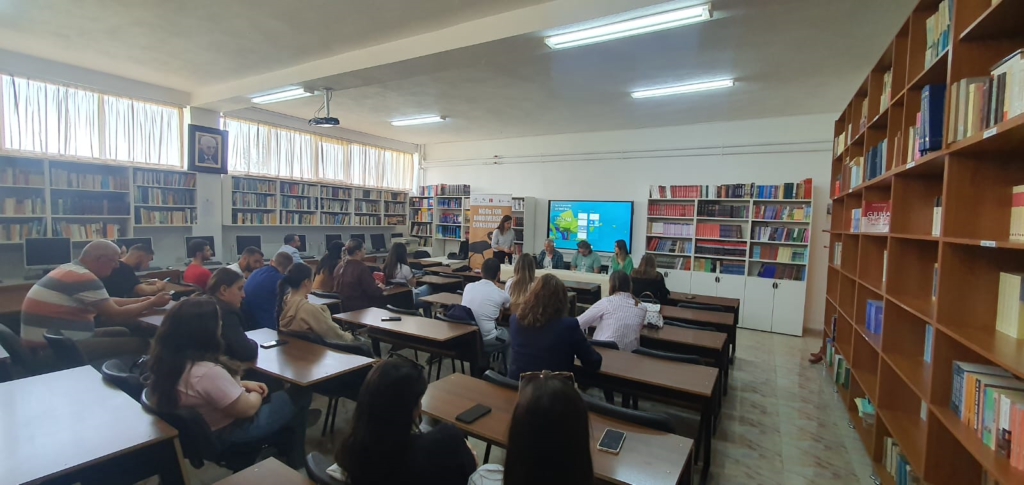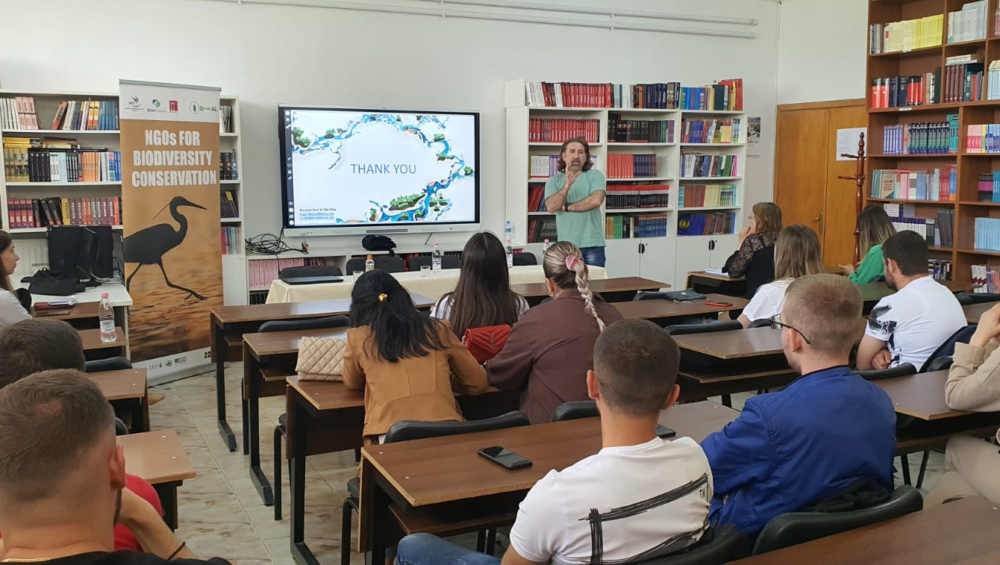The most recent milestone in our journey took place at the esteemed “Fan S. Noli” University in Korça, Albania. This concluding open lecture of the current phase continued to explore the critical topic of altering the boundaries of Protected Areas (PAs) and its profound implications for ecological integrity and future governance.
In a world facing unprecedented environmental challenges, education and advocacy have emerged as powerful tools to safeguard our natural treasures and promote a sustainable future. The success of a series of open lectures and discussions organized is a testament to the importance of engaging with the next generation of students who are passionate about environmental, architectural, and legal issues.


Key Lecture Highlights:
- Analyzing the Impact on Biological Integrity: The lecture explored the anticipated effects on the biological integrity of Protected Areas (PAs) resulting from the review process. It underscored the paramount importance of safeguarding these regions for biodiversity and ecological equilibrium.
- The Significance of Science in Nature Conservation: Participants acquired an understanding of the vital role that scientific research and knowledge play in the endeavor to safeguard and conserve nature. Science assumes a pivotal function in furnishing evidence-based solutions for preserving natural habitats.
- Strategic Approaches to Litigation in the Review of Protected Areas: The lecture also encompassed the legal facets of the PA review process, encompassing the strategic approaches to litigation employed to ensure their protection. Legal experts imparted valuable insights into this critical aspect of conservation initiatives.
Throughout the lectures, the pivotal role of collaborative partnerships is emphasized between non-governmental organizations, academic institutions, and government authorities. These partnerships have proven essential in enhancing the effectiveness of our collective efforts towards a sustainable future.
The activities are part of the “NGOs for Biodiversity Conservation” project, supported by #GreenAL. Funding for this project comes from the Swedish International Development Cooperation Agency (SIDA), with contributions from the Swedish Government. The project is implemented by Co-PLAN Institute for Habitat Development, in collaboration with CISP Sviluppo dei Popoli, VIS Albania, and COSV – Cooperazione per lo Sviluppo.
#GreenAL, (#SIDA) by #CoPLAN, #VISAlbania and #COSV







